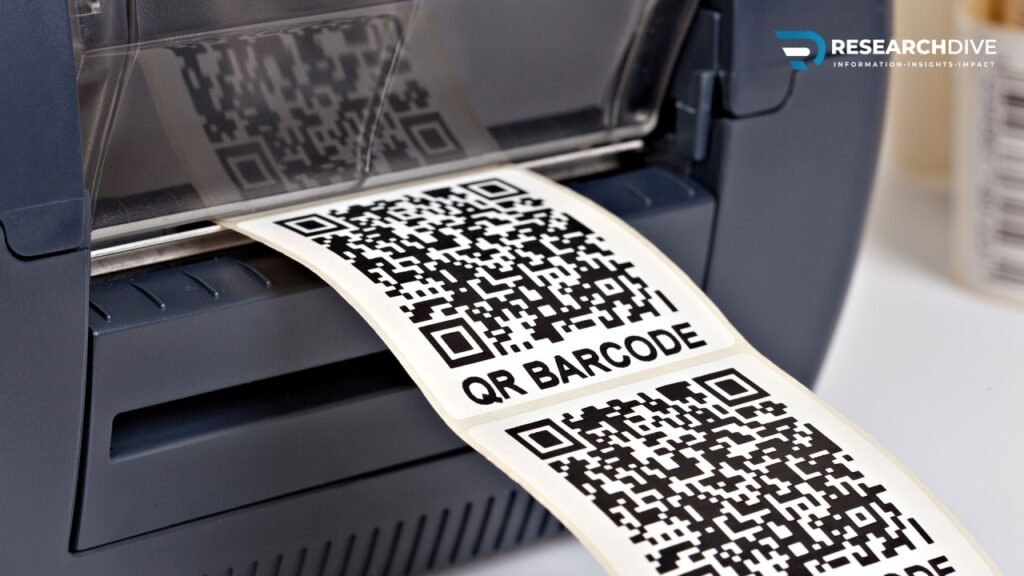In today’s fast-paced business environment, efficiency and accuracy are key. Barcode printers play a vital role in achieving both. Whether you’re in retail, logistics, healthcare, or any other industry, barcode printers help streamline operations, reduce errors, and improve inventory management. This ultimate guide will walk you through everything you need to know about barcode printers, from how they work to selecting the right one for your business needs.
What Is a Barcode Printer?
A barcode printer is a specialized device used to print labels with barcode symbols. These barcodes can be scanned and read by barcode scanners to track inventory, manage assets, and streamline data collection. Barcode printers come in various types, including thermal transfer, direct thermal, and inkjet, each with its own advantages depending on the application.
Types of Barcode Printers
- Thermal Transfer Printers
- How They Work: These printers use a heated ribbon to transfer ink onto a label, creating high-quality barcodes. The heat melts the ink onto the label, making it durable and long-lasting.
- Best For: Labels that need to withstand harsh environments, such as chemical exposure or extreme temperatures.
- Direct Thermal Printers
- How They Work: Direct thermal printers use heat-sensitive paper that darkens when heated by the printhead. There’s no ink or ribbon involved, making it a cost-effective solution.
- Best For: Short-term labels, like shipping labels, where the label doesn’t need to last for long periods.
- Inkjet Barcode Printers
- How They Work: Inkjet printers use liquid ink sprayed onto the label. They can print high-quality, full-color barcodes and graphics.
- Best For: High-resolution printing and when you need to print full-color labels along with barcodes.
Key Features to Look for in Barcode Printers
- Print Speed: Faster print speeds are essential for businesses with high-volume label printing.
- Print Resolution: The resolution determines how clear the barcode prints. Higher resolution is crucial for small barcodes and fine print.
- Connectivity Options: Barcode printers should offer multiple connection options like USB, Wi-Fi, Bluetooth, or Ethernet to integrate seamlessly into your business systems.
- Label Durability: Choose a printer that produces labels that can endure your operational conditions, such as extreme temperatures or exposure to chemicals.
Why Your Business Needs a Barcode Printer
- Improved Inventory Management: Barcode printers help track products accurately, reducing the chances of errors in stock levels and providing real-time inventory updates.
- Cost Savings: By eliminating manual data entry, barcode printers save time and reduce the chances of human error, ultimately lowering operational costs.
- Enhanced Customer Experience: Barcode scanning speeds up the checkout process and ensures correct pricing, improving customer satisfaction.
- Compliance: Certain industries, like healthcare and pharmaceuticals, require barcode labeling for compliance with regulations, ensuring product traceability and safety.
Choosing the Right Barcode Printer for Your Business
When selecting a barcode printer, consider the following factors:
- Business Size and Print Volume: Large businesses with high print volumes may need industrial barcode printers, while small businesses might prefer desktop models.
- Label Size and Material: Make sure the printer supports the size and material of the labels you need, such as paper, synthetic, or specialty labels.
- Environment: Industrial-grade printers are ideal for harsh conditions, while office-based printers are sufficient for indoor use.
- Budget: Barcode printers range from affordable desktop models to high-end industrial models. Determine your budget and choose the best option within it.
Barcode Printers for Different Industries
- Retail: Barcode printers help speed up transactions, track stock levels, and ensure correct pricing on shelves.
- Logistics & Warehousing: These industries benefit from barcode printers for labeling shipments, pallets, and inventory, improving traceability and reducing errors.
- Healthcare: Barcode printers are crucial for tracking medical supplies, prescriptions, and patient records, ensuring accuracy and patient safety.
- Manufacturing: Barcode labels on products and parts help manufacturers track production stages and manage inventory efficiently.
Conclusion
Barcode printers are indispensable tools for businesses looking to streamline operations and improve efficiency. By understanding the different types of barcode printers and their features, you can select the best one for your business. Whether you’re managing inventory, improving customer service, or ensuring compliance, barcode printers simplify your processes, saving time, reducing costs, and improving accuracy.
For businesses that want to ensure high-quality printing and the best prices, Mindware offers a variety of barcode printers and labels, including Zebra printers and ribbons. Let Mindware help you make the most of your barcode labeling solutions!

